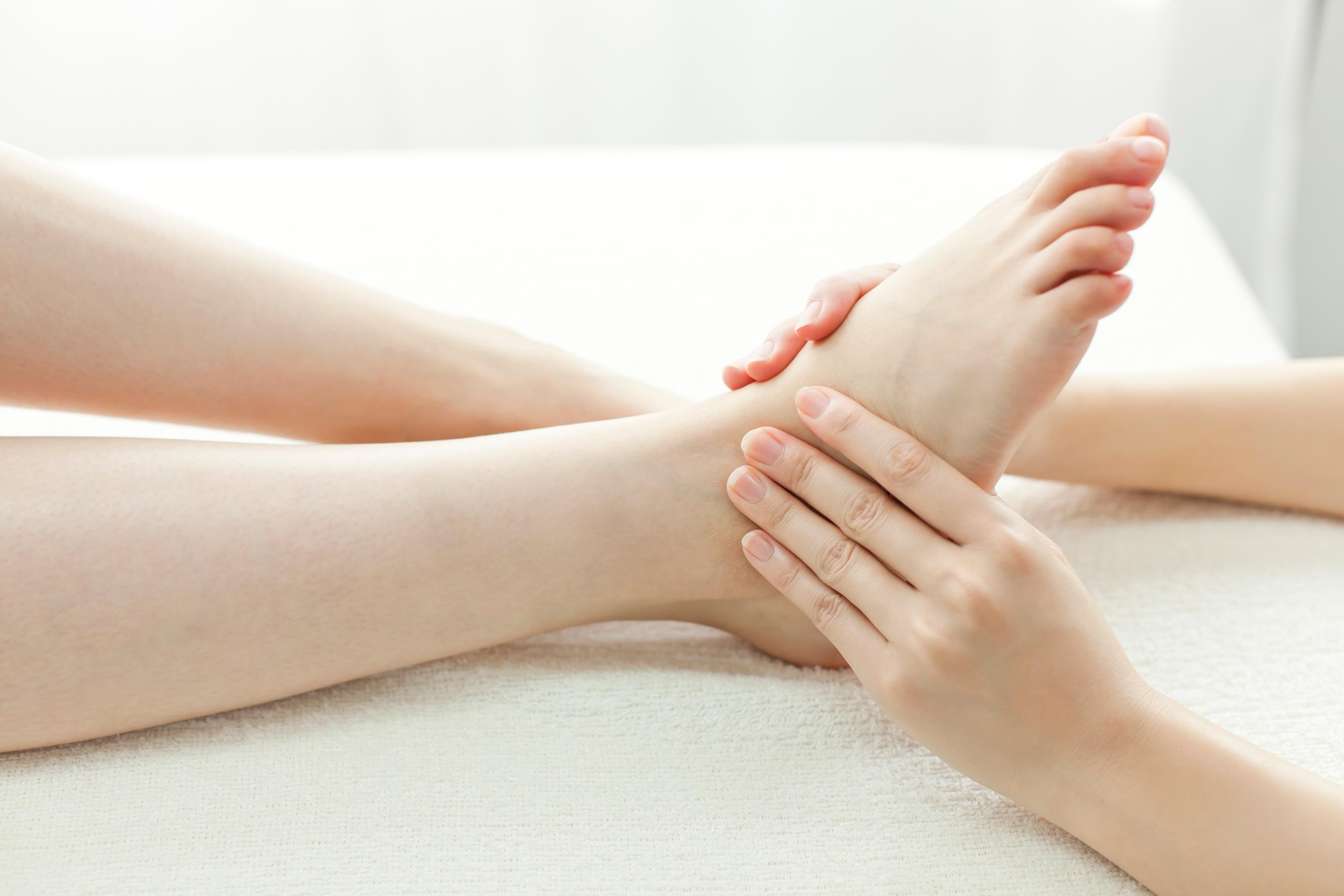Reflexology for Menopause
In the past, most women would not have lived long enough to go through the menopause, but now most women survive to the age when the menopause occurs. In the intervening centuries, attitudes towards the menopause have changed enormously, from it being associated with witchcraft in ancient civilisations and treated as a disease in more recent centuries, to it now being recognised as a natural part of the ageing process and a new phase in life. As reflexology tutor, Sally Earlam says “Menopause can be a new beginning: a time when our sense of purpose as women can change enormously.” Hear hear to that! Rather than seeing menopause as something to be feared, we can see it as an opportunity for transformation and growth.
To clarify, menopause is complete when menstruation is absent for 12 consecutive months, the median age of which is 51, but it can be anywhere between the ages of 45 and 55, and can develop before or after this age range. About 1% of women reach menopause before the age of 40, which is referred to as Premature Menopause. About 5% of women reach menopause between the ages of 40 and 45, which is referred to as Early Menopause. Perimenopause is the lead up to the menopause when symptoms may begin, but it is not medically an official condition and there are no 'clinical' ways to diagnose it. This can be the most challenging time when hormone levels are fluctuating most - like puberty in reverse!
Some women sail through the perimenopause and menopause with very few or no adverse effects, while others struggle with debilitating symptoms that can negatively impact relationships and careers. The most common symptoms are hot flushes and night sweats, other common ones include anxiety, fatigue, low mood, insomnia, difficulty concentrating, memory problems and low libido.
A healthy lifestyle and managing stress well can help protect against these symptoms, so if you want to prepare for a positive menopause, it pays to start early in adulthood. But it is never too late to make lifestyle changes, as they can help alleviate existing menopausal symptoms and support healthy ageing. The five areas to look at are: nutrition, exercise, relaxation, sleep and purpose, which I will explore in another post.
So how can reflexology play a role in a positive menopause? While reflexology itself may not directly treat or cure menopause, it can potentially help alleviate some of its symptoms and improve overall wellbeing during this transitional phase in a woman's life. By intentionally working with reflexes, acupressure and pleasurable touch, reflexology can help calm the nervous system with the aim of supporting key organs and balancing hormones to aid sleep, improve mood and enhance wellbeing.
Hormonal Balance
As the name suggests, reflexology uses reflex points. A reflex is when stimulation of one point on the body brings about a response in another point or area. Reflexology uses thumb, finger and knuckle pressure to stimulate specific points on the feet, hands or face and the corresponding part of the body. Certain reflex points correspond to the glands involved in hormonal regulation. The most relevant to the menopause are the hypothalamus, pituitary, pineal, thyroid and the ovaries. The aim of stimulating these reflex points is to promote hormonal balance, potentially easing menopausal symptoms.
Reflexology for the menopause also incorporates the application of pressure to specific points (known as acupressure) on the foot and leg that are linked to hormonal balance - the same ones used in acupuncture.
In a study into ‘The effect of foot reflexology applied to women aged between 40 and 60 on vasomotor complaints and quality of life,’ Gozuyesil and Baser concluded: “the results showed that reflexology might be effective in decreasing vasomotor problems and increasing quality of life in women in the menopausal period.”
Stress Reduction
Under chronic stress, the adrenal glands produce cortisol and adrenaline at the expense of oestrogen and progesterone, so chronically elevated cortisol levels can increase the likelihood of severe menopausal symptoms.
Reflexology has a calming effect on the nervous system through the soothing effect of touch and the stimulation of reflex points associated with the brain, spinal cord and nerve bundles, which all helps to counter the stress response, promoting a sense of calm and balance. Personally, I find reflexology to be the most profoundly relaxing of treatments! It gets me into that alpha brain wave state between sleep and wakefulness associated with meditation.
As well as regular reflexology sessions, a daily relaxation practice can help counter chronic stress, whether that is meditation, a hot bath, being in nature or whatever soothes you. Guidance on such self care forms an important part of a treatment.
Sleep
Many women experience disrupted sleep patterns during menopause, which can have detrimental effects on mental and physical health. By promoting a state of relaxation conducive to restful sleep, reflexology can help with insomnia.
Indeed, in their research study, ‘The effects of Reflexology on sleep disorder in menopausal women,’ Maryam Asltoghiri and Zahra Ghodsi concluded that “reflexology is beneficial for improving sleep disorder in menopausal women.”
Enhanced Wellbeing
Menopause is a significant life transition that can impact a woman's physical and psychological wellbeing. Reflexology sessions provide an important opportunity for self care and a sense of agency at what can be a challenging time. I certainly always feel better in myself after a reflexology treatment - lighter, revitalised.
Reflexology has been shown to help with anxiety, fatigue and low mood associated with the menopause. For example, in a study into ‘The effects of foot reflexology on depression during menopause,’ Mahdavipour et al. concluded that “The findings indicated that the foot reflexology technique can be effective for reducing women's depression during menopause.”
To conclude, reflexology in conjunction with a healthy lifestyle can support a positive menopause by working on the key areas of: hormonal balance, stress reduction, improved sleep and an enhanced sense of wellbeing.
If you would like to explore reflexology for the menopause further, do get in touch for a chat about it or to schedule an appointment by emailing wendy@rookeholistic.co.uk or calling me on 07528 708650.
Sources
‘The effects of Reflexology on sleep disorder in menopausal women,’ Maryam Asltoghiri, Zahra Ghodsi, Procedia - Social and Behavioral Sciences, 2012, 31, 242-6.
https://www.sciencedirect.com/science/article/pii/S1877042811029788
‘The effect of foot reflexology applied to women aged between 40 and 60 on vasomotor complaints and quality of life,’ Ebru Gozuyesil, Muruvvet Baser. Complement Ther Clin Pract, 2016, 24, 78-85.
https://pubmed.ncbi.nlm.nih.gov/27502805/
‘The effects of foot reflexology on depression during menopause: A randomized controlled clinical trial,’ Fatemeh Mahdavipour, Zahra Rahemi, Zohreh Sadat, Neda Mirbagher Ajorpaz. Complement Ther Med, 2019, 47,102195. https://pubmed.ncbi.nlm.nih.gov/31780002/

